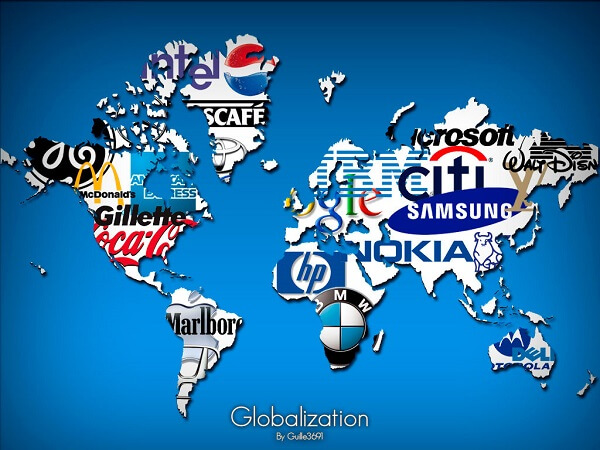Advantages and Disadvantages of Global MarketingCompanies in the area often market their goods. However, foreign goods have been continuously brought into various markets throughout history, and sellers-or, in contemporary parlance, marketers-have adjusted, updated, or revised their marketing approaches to appeal to and win over the local market. The emergence of modern transport and technology has created a global community. It's not hard to imagine a business selling goods to clients who reside thousands of kilometers away. While there are several possibilities when selling internationally, there are also numerous hazards. Companies must use efficient global marketing to prevent failure and build a strong worldwide brand. 
What do you mean by Global Marketing?Global marketing can be described as "marketing on a global scale, in various nations, reconciling or taking economic benefits of global operational variations, similarity, and possibilities to fulfill global goals." Global marketing is, in essence, a company selling identical goods to markets worldwide. Samsung's Galaxy S series is a prime example of a product that is not regionally designed but is promoted internationally. There are offices of several multinational corporations overseas in many markets. Today, thanks to the growth of the internet, even tiny businesses can quickly and cheaply reach a worldwide audience. Some of the major participants in global marketing are H&M, Airbnb, Coca-Cola, PepsiCo, and Mad Over Donuts. Importance of Global Marketing?When there is a widespread need for a specific product, global marketing is most effective. These are the main advantages of international marketing: 1. A higher margin of profit The company's ability to grow its client base is the apparent benefit. Selling to a global market instead of a domestic one is more beneficial. Only major companies could previously afford to do business overseas. The Internet now makes it possible for even tiny enterprises to connect with clients anywhere in the globe. Global marketing presents significant chances for businesses to boost their revenue and profitability, which they lose out on. 2. A standardised marketing approach In how it markets its goods and services, the corporation may remain consistent. There are two benefits to this. The corporation may employ global ads for clients, which reduces marketing expenses in the first place. Second, by using standardised marketing techniques, a business may concentrate on its core operations, such product development, while also saving time and effort. 3. Worldwide brand awareness A corporation with a worldwide presence is seen favourably by customers. Consider the companies Dunkin' Donuts and Starbucks. Aren't these establishments more renowned than the local coffee shop? In actuality, local markets may be affected by a brand's reputation on a global scale, increasing brand awareness and driving sales. 4. Scale economies Efficient use of scale is another benefit of global marketing. Your business gains strength, network, and technical expertise as it expands. All of this may result in a manufacturing process that is quicker, less expensive, and more effective. With less expense, your business can generate more. Global Marketing Process
The multinational company ensures that all nations are exposed to its vision while maintaining its scope, capacity, expertise, and workforce. For this, the company must thoroughly study the intended market, the competitors, and the applicable laws and rules. The target market's choices in terms of religion and social groups would be a significant influence. They must be respected, and the company must preserve homogeneity in its offerings while making the required changes to its goods or services. They could need to collaborate with local groups for this or get additional licenses and licenses from the government. Before being on the market, the company must research its clients, their preferences and dislikes, ethnicities, and other characteristics. Price for the products may be country-specific. At this level, branding for international brands is often combined with international marketing. To appeal to the audience, the product's branding may be modified. Although updated, the branding message is kept in line with the company's vision and objective to ensure that all consumers have a consistent level of loyalty to the brand and memory. Global Marketing StrategiesGlobal marketing plans are a component of a comprehensive company strategy. It involves changing a company's marketing tactics better to suit the demands of prospective clients in various nations. A business may reach a new consumer base and boost sales by entering a new overseas market. Other advantages might include cheaper labor, easy accessibility to extra resources, and the capacity to spread risks. When entering foreign markets, consistency and building a recognisable brand for everyone are top priorities. Some company characteristics may not change when your marketing tactics are put into action, while others may be significantly impacted. For example, even if some firms choose to update these elements as well, the new logo is likely to stay the same. Your marketing strategy could also be drastically altered. In every new market, for instance, the message, advertising, and PR strategy may vary. Different Forms of a Global Marketing StrategyThree different kinds of global marketing strategies exist: 
1. Standardization Setting uniform standards for products and marketing across all markets is referred to as global marketing standardization. To sell the very same goods worldwide, in other words. The manufacturing process is also sped up by standardisation since no new features need to be developed. Additionally, businesses find it simple to train their employees. Red Bull serves as an illustration of marketing consistency on a worldwide scale. Red Bull utilizes the very same 12 oz cans with a universal appeal for all of its packaging. In every market it serves, it also uses a sponsorship marketing strategy. Red Bull has achieved great success because to its consistent packaging and marketing messaging. The company is a well-known energy drink supplier and dependable sporting event sponsor, and almost everyone is familiar with the name. 2. International approach Import and export of products are part of the international approach in global marketing. With the lowest amount of market interaction, this approach carries a minimal level of risk. The business may continue to conduct all activities in its domestic market without having to open an office there. International approach is less hazardous but also less lucrative. 3. Multinational approach International marketing and multinational strategy are quite similar in nature. The same process is followed, but the goods are customized for each market. Customization is depending on circumstances and market need. As instance, extra employees may be sent to areas with a high population and demand. Elements of Global MarketingThe marketing mix, which is another name for the product, price, place, and promotion parts of global marketing, includes these four components. 
Global Marketing Advantages1) Global Reach: Due to the internet's free accessibility, business reach has expanded. Chinese businesses, including Amazon and Alibaba, have only been able to expand internationally with the help of the internet. Reaching a large range of clients easily aids in developing brand image. 2) Lower Costs: By implementing a unified message globally, marketing expenses are drastically reduced, allowing profit margins to remain intact. 3) Global Feedback: With consistent message around the globe, firms must pay equal attention to the feedback they receive. Global marketing helps businesses to do both, allowing them to gather insightful feedback and modify their strategies as necessary. 4) Resolving Time Restrictions: In contrast to traditional advertising, in which the print takes days or weeks to approve and then distribute to the final consumer, in this scenario, the campaign targets the consumers in a matter of clicks of the mouse, decreasing the action to formulate. Marketing efforts that are implemented more quickly will produce quicker results, which will lead to quicker revenues. Global Marketing Disadvantages1) Cultural barriers: Cross-country marketing has a lot of challenges here. Not all cultures are compatible with the company and its products. The corporation may need to adopt some particular rules for certain nations to cross these cultural barriers, which can be time-consuming and expensive. It cannot be easy to manage them in international marketing. As illustration, Mcd's has modified its menus by excluding pork in Arabic-speaking nations and beef in India. KFC & Burger King have adopted a related strategy. 2) Limited audience: Not all individuals will be interested in the product, and they might not be the right target market. In similar circumstances, the business can only serve a small portion of the clientele, losing out on the remaining portion. As an illustration, most US businesspeople can be observed bringing coffee to work, typically Starbucks. While Starbucks operates effectively there, the very same may not be true in African nations where, regardless of the presence of Starbucks, it hasn't been successful in breaking through the usage limitations as it has in the US and other European nations. 3) Political and legal restrictions: Donald Trump's Make America Great Again campaign caused many multinational businesses to suffer, and some of them were forced to relocate their production facilities back to the US. The corporations in these situations are required to bear significant costs. 4) Inventory management: With soaring inventory expenditures for the business, massive amounts of wasted material could accumulate. This may result from inaccurate estimates, a failure to properly consider the local market, a hasty launch, or an overestimation of projections. ConclusionAt first, developing a worldwide brand strategy could seem daunting. We make this process easier for you and your business team by allowing you to learn about a workspace in which you can collect market data, assemble a team with different permissions, responsibilities, and access, and describe your marketing plan. In conclusion, an international market is where companies can offer their goods and services. You may sell on a worldwide scale by gathering sales from local markets. In compared to the local level, there are more clients, increasing earnings. Research is necessary before expanding a firm to a new nation; otherwise, your growth might be in danger, and your investment could be lost. Although there are numerous marketing techniques, you may do to attract clients from across the world. Consider production, licensing, or exporting your services or goods as indicators of a strong brand image. The focus, objective, clients, strategy, and other factors distinguish the global and international markets. |
 For Videos Join Our Youtube Channel: Join Now
For Videos Join Our Youtube Channel: Join Now
Feedback
- Send your Feedback to [email protected]
Help Others, Please Share









